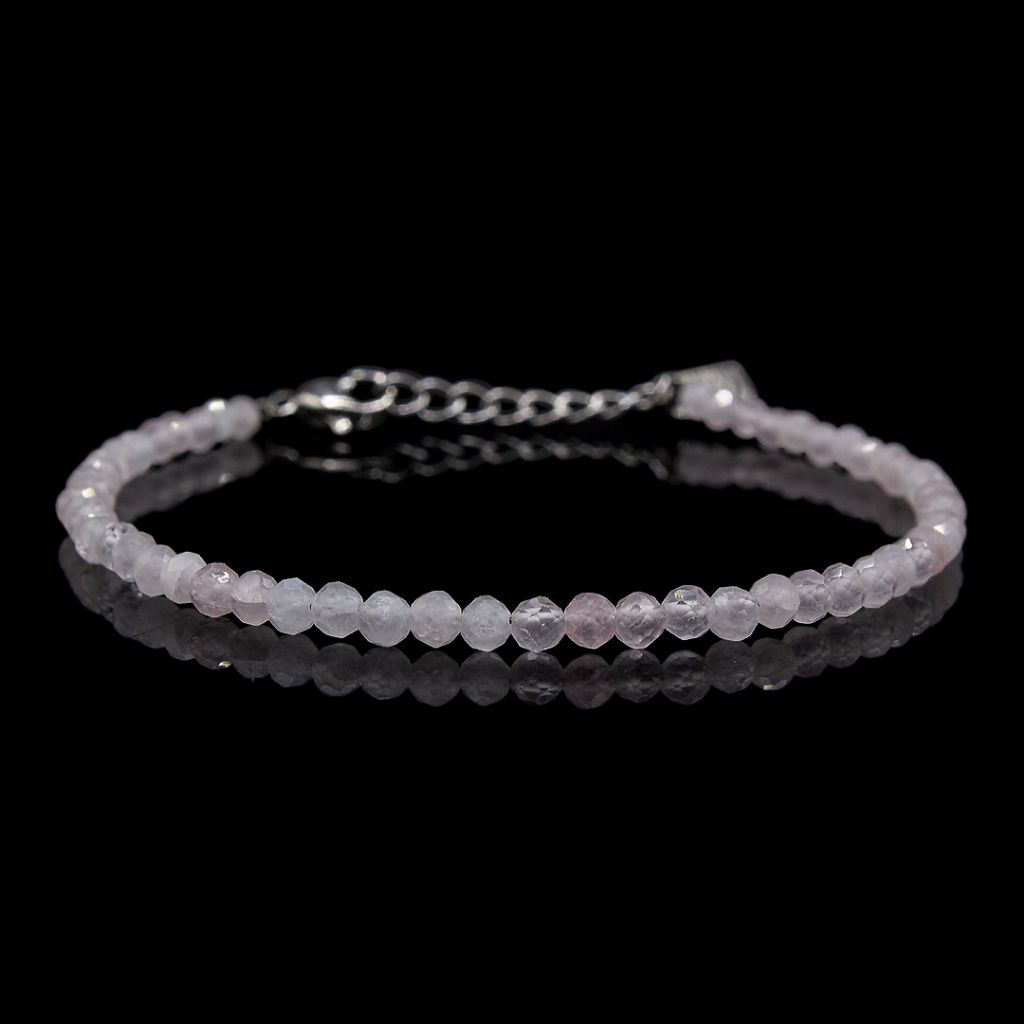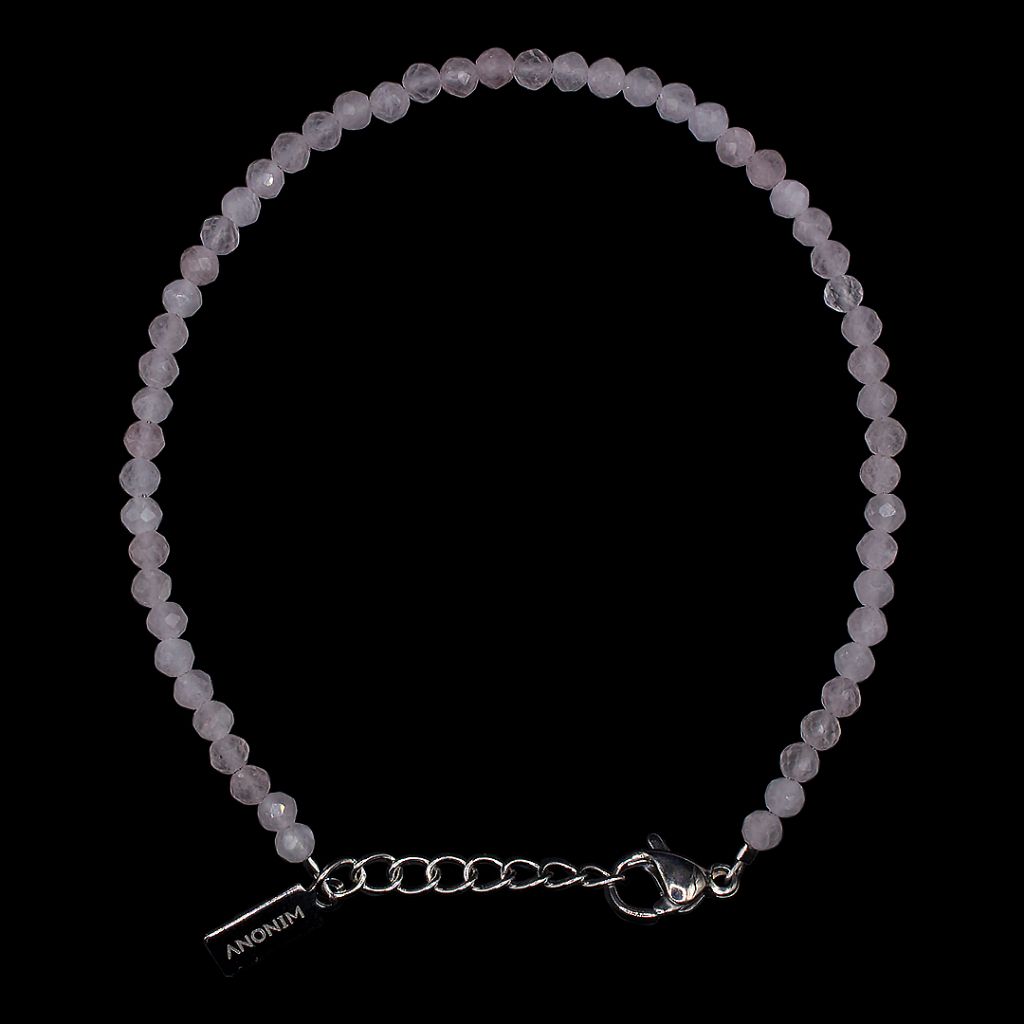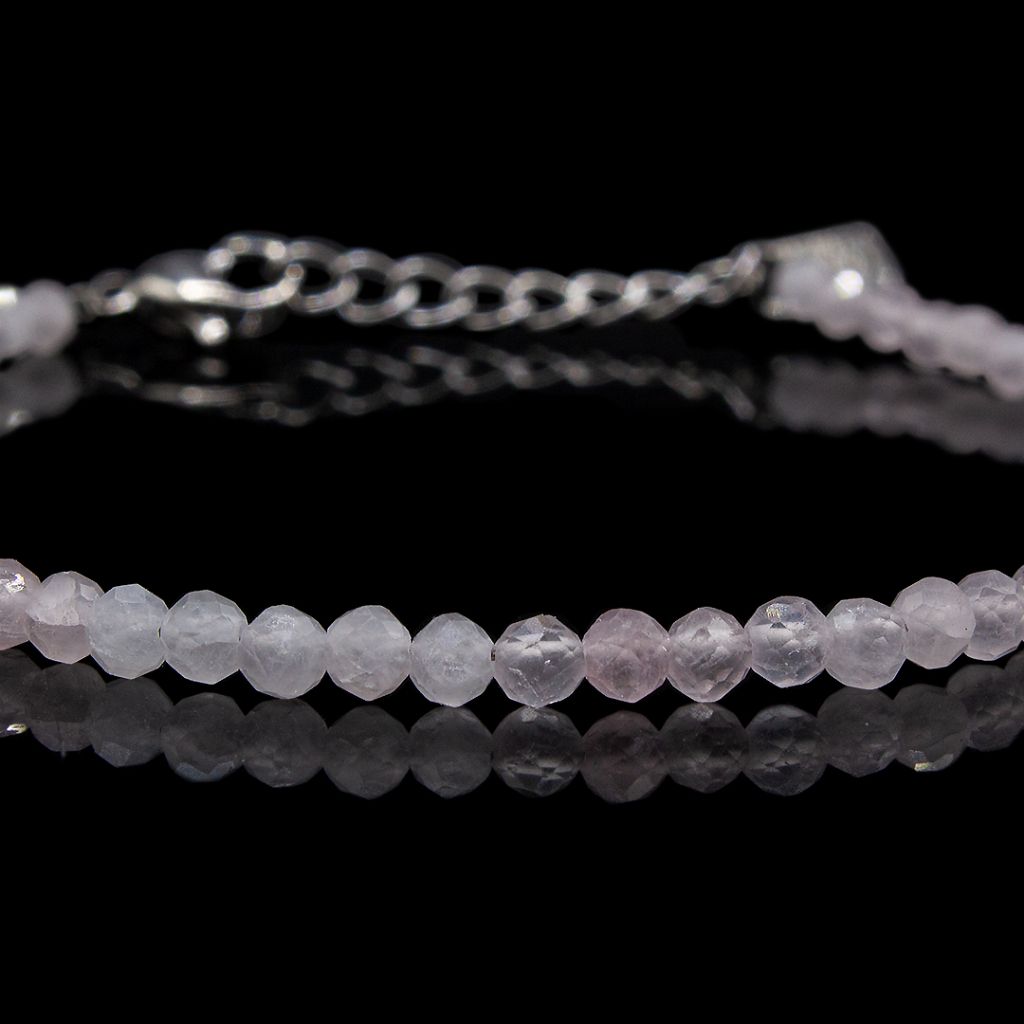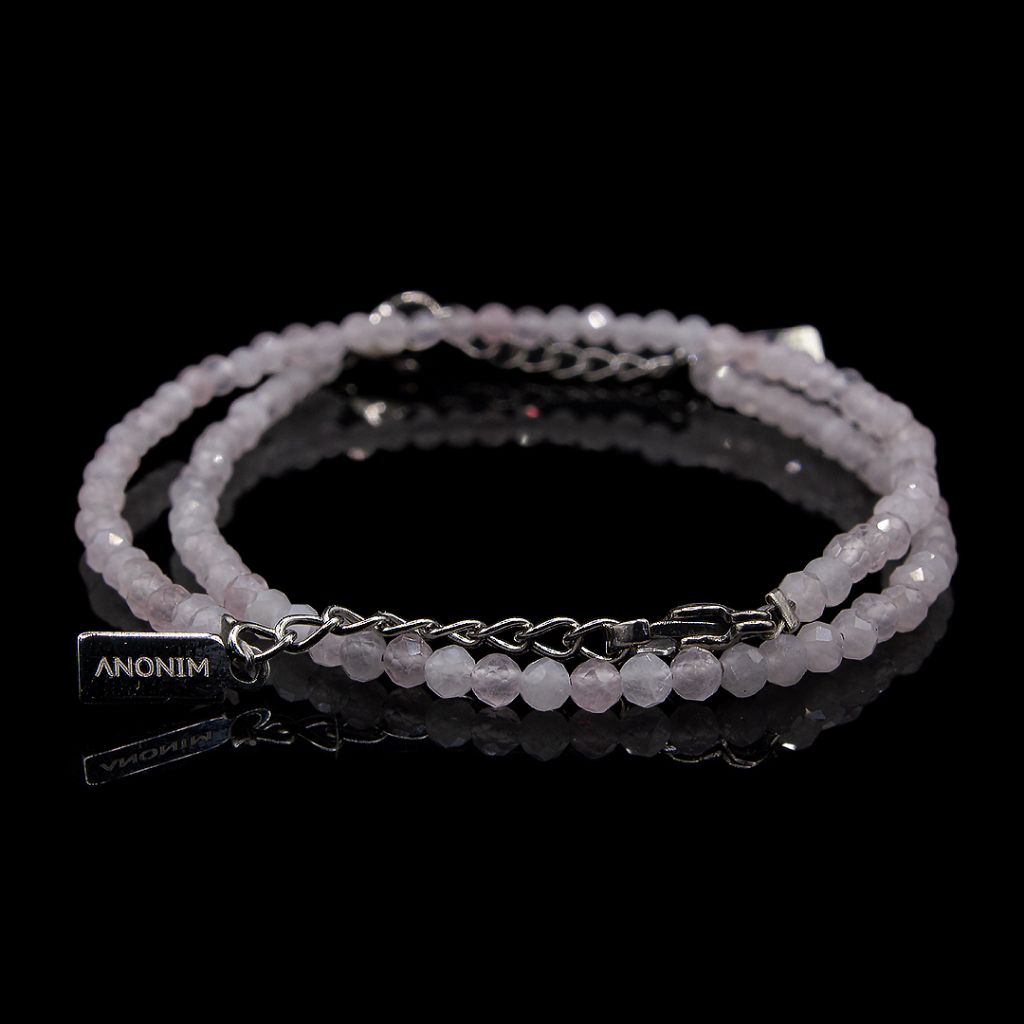Minimalist Series: Rose Quartz Bracelet 3mm | Grade A | Faceted
- Regular price
- RM 17.00
- Sale price
- RM 17.00
- Regular price
-
RM 0.00
Worldwide shipping
Secure payments
Authentic products
Share
- Bead Size: 3mm | Faceted
- Accessories: Anonim Tag | Stainless Steel
- Size Range: S(14cm) - XL(18cm)
- Symbolize: Love, compassion, and emotional healing.
- Composition: Rose quartz is a variety of quartz and is composed of silicon dioxide (SiO2) with traces of titanium, iron, or manganese that give it its pink color.
- Color: Rose quartz has a soft, delicate pink color ranging from pale pink to deeper shades of pink.
- Hardness: It has a hardness of 7 on the Mohs scale, making it relatively durable and suitable for use in jewelry.
- Metaphysical properties: Rose quartz is known as the stone of love and compassion. It symbolizes unconditional love, emotional healing, and harmony. This stone is believed to open the heart chakra, promoting self-love, forgiveness, and deep connections with others. Rose quartz is often used to attract and enhance romantic love, as well as to foster empathy, compassion, and understanding. It is thought to soothe emotional wounds, reduce stress, and bring about a sense of peace and inner tranquility. Rose quartz is also used for promoting positive self-image and nurturing feelings of self-worth.
It's important to note that the properties and beliefs associated with gemstones can vary across different cultures and individuals. While some people strongly believe in these properties, others may perceive them differently or focus more on the aesthetic value of gemstones.
Remember, these benefits are not scientifically proven, and individual experiences may vary. It's essential to approach gemstone properties with an open mind and personal belief, understanding that they are often considered complementary tools to support overall well-being rather than a substitute for professional medical advice or treatment.
×







